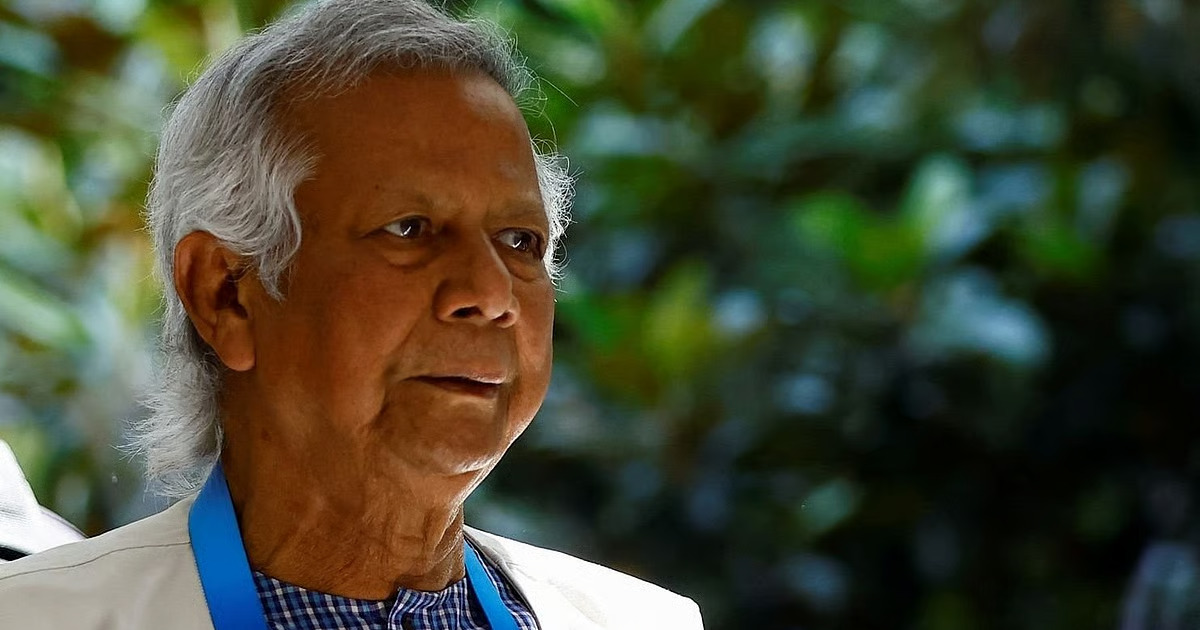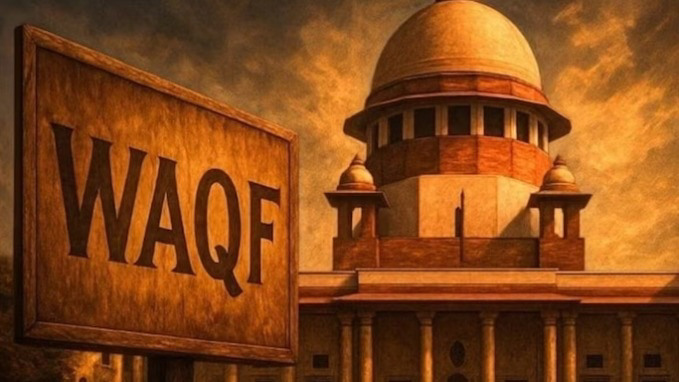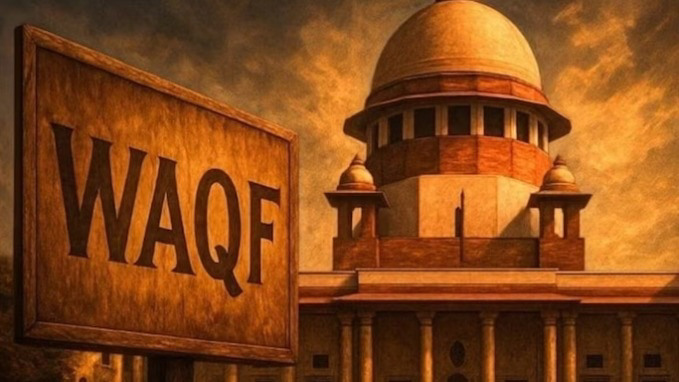The Bullet and the Bigot: Charlie Kirk’s Death and America’s Reckoning

Charlie Kirk, the self-styled messiah of American conservatism and founder of Turning Point USA, was shot dead on September 10, 2025, at Utah Valley University while addressing a rally on the very subject that defined his politics—guns. The irony is both chilling and grotesque: a man who spent years claiming some gun deaths were a “prudent deal” for freedom became the latest victim of the culture of violence he idolized. But to reduce Kirk’s demise to irony would be shallow.
His death is not just another statistic in America’s sprawling gun violence ledger—it is an opportunity to interrogate the corrosive ideology he mainstreamed: xenophobia, Islamophobia, misogyny, transphobia, racism, and climate denial. What Kirk leaves behind is not a celebrated legacy of principled conservatism but a poisoned well of hate that continues to shape the American Right.
Guns: The Idol That Devoured Its Prophet
Charlie Kirk saw guns not as tools of violence but as sacred symbols of liberty. He dismissed mass shootings as collateral damage, once stating: “It’s worth it to have a cost of… some gun deaths every single year so that we can have the Second Amendment.”
This cavalier acceptance of death reveals the moral rot at the heart of America’s gun culture. Kirk opposed every reform, from background checks to assault weapon bans, instead demanding more guns in more places. He called for schools to be armed like airports and banks, teachers to carry firearms, and congregations to turn churches into fortresses.
His assassination—witnessed by his own wife and children—shatters this fantasy. Kirk fell to the very violence he championed, his blood becoming the newest ink in a ledger he once trivialized. How many more such deaths before America acknowledges that it is not liberty but lunacy to place firearms above human lives?
India, Immigration, and the Weaponization of Xenophobia
Days before his death, Kirk turned his sights on Indian immigrants, declaring: “America does not need more visas for people from India. Enough already. We’re full.” Behind this rhetoric was not policy but paranoia—the absurd idea that Indian engineers and doctors were displacing American workers.
This was merely one strand in his larger endorsement of the “Great Replacement” theory, which portrays immigrants—especially non-white ones—as a demographic threat. He accused Jews of engineering this transformation, mixed xenophobia with antisemitism, and recast a diverse America into a racial battlefield.
By targeting Indians, he showed how racism adapts to perceived economic insecurities. But the truth he ignored is stark: America’s healthcare, technology, and innovation industries would collapse without immigrants. In stoking hate for political gain, Kirk threatened the very pluralism that sustains America.
Gaza, Muslims, and the Gospel of Cruelty
On Gaza, Kirk stood firmly on the side of destruction. He dismissed reports of famine as “propaganda” and images of starving children as “optical warfare.” He absolved Israel entirely, insisting Palestinians alone bore responsibility for their deaths—repeating, with chilling indifference, the logic once used to justify nuclear bombings in World War II.
His Islamophobia was textbook. He described Muslims as genocidal, intent on exterminating Jews globally, reducing an entire faith to bloodthirsty caricatures. For Kirk, empathy itself was a dirty word; he derided it as “new age nonsense.” By stripping Palestinians and Muslims of humanity, he normalized their suffering, turning systemic violence into a moral crusade.
Women, Abortion, and the Politics of Control
Kirk’s vision for women belonged to a bygone era of subjugation. He claimed that young women voting for Kamala Harris were trading family for “careerism, consumerism, and loneliness.” Days before his death, he linked declining Western birth rates to women allegedly abandoning their “duties” as mothers.
On abortion, his cruelty was even more pronounced. Asked whether he would force his underage daughter to give birth after rape, his answer was chilling: yes. In Kirk’s worldview, women could be reduced to childbearing vessels—autonomy, trauma, dignity all irrelevant. This wasn’t sanctity of life but sanctity of patriarchy.
Trans People as Targets
Perhaps no group endured Kirk’s bile as relentlessly as transgender people. He called transgenderism a “mental disorder,” an “abomination,” and blasted trans people as a “throbbing middle finger to God.” He deadnamed athletes, attacked gender-affirming care for youth, and suggested they be treated the way “men did in the 1950s and 60s”—a phrase many understood as coded endorsement of institutionalization or violence.
Even his final moments were infused with this hate. When asked about the number of transgender mass shooters, he quipped “too many,” amplifying a false narrative while ignoring statistical truth: trans Americans are far more likely to be victims of violence than perpetrators.
His crusade against trans people epitomized his politics of fear—selecting vulnerable targets, vilifying them, and turning their existence into a cultural battlefield.
Black Americans and Affirmative Action
Kirk’s stance on Black America was equally corrosive. He smeared affirmative action as “evil” and suggested Black professionals only advanced by stealing “white slots.” He openly doubted the competence of Black pilots, claiming he’d “hope they’re qualified,” and insulted towering figures like Michelle Obama and Ketanji Brown Jackson as intellectually inferior.
George Floyd, whose murder galvanized a global movement against police brutality, was dismissed by Kirk as a “scumbag.” For him, systemic racism didn’t exist; Black suffering was reduced to “inner-city crime” and absentee fathers. Such rhetoric performed double damage—denying historical injustices while legitimizing present-day prejudice.
Climate Denial: Poisoning the Future
In the face of burning forests, rising seas, and deadly hurricanes, Kirk sneered at climate science as “nonsense and balderdash.”
He insisted there was no consensus on global warming and lined his platforms with fossil-fuel apologists.
This denialism was not a fringe outburst—it was a betrayal of his own generation, whose future depends on confronting climate catastrophe. In ridiculing the crisis, Kirk shackled his thousands of young followers to ignorance, leaving them ill-prepared for the challenges they will inherit.
The Architect of Division
Charlie Kirk liked to cloak himself in the rhetoric of “free speech,” but his speech was less about freedom than cruelty. With Turning Point USA, he cultivated an army of grievance-driven youth who learned not to debate with reason but to mock, smear, and vilify.
He aligned himself with Donald Trump and used Christian imagery to package political resentment as gospel truth. What he built was not dialogue but division, not conservatism but culture war.
Dying by His Own Creed
Kirk’s assassination should not inspire celebration; violence answering violence offers no justice. But it should force America to face hard truths. Charlie Kirk died as he lived—surrounded by guns and drowning in the consequences of his own worldview.
The larger question is whether America learns anything from this. Will Congress continue to bow to gun lobbies and culture war politics, shrugging off one more death as “the price of liberty”? Or will Kirk’s blood be the turning point, a moment when the nation admits that worshipping firearms has led only to tragedy?
Because here is the ultimate irony: Charlie Kirk was not just a victim of a lone shooter. He was a victim of the very ideology he helped unleash—a worldview that sanctified violence, mocked empathy, denied science, and vilified entire communities.
That, more than his final words or his political theatre, is his true legacy: a cautionary tale of what happens when hate, armed by guns, becomes a movement.
(Mr. Naqvi, a former member of the history faculty at St. Xavier’s College, Mumbai. Is a regular EW columnist.)

 3 weeks, 5 days ago
3 weeks, 5 days ago











[[comment.comment_text]]